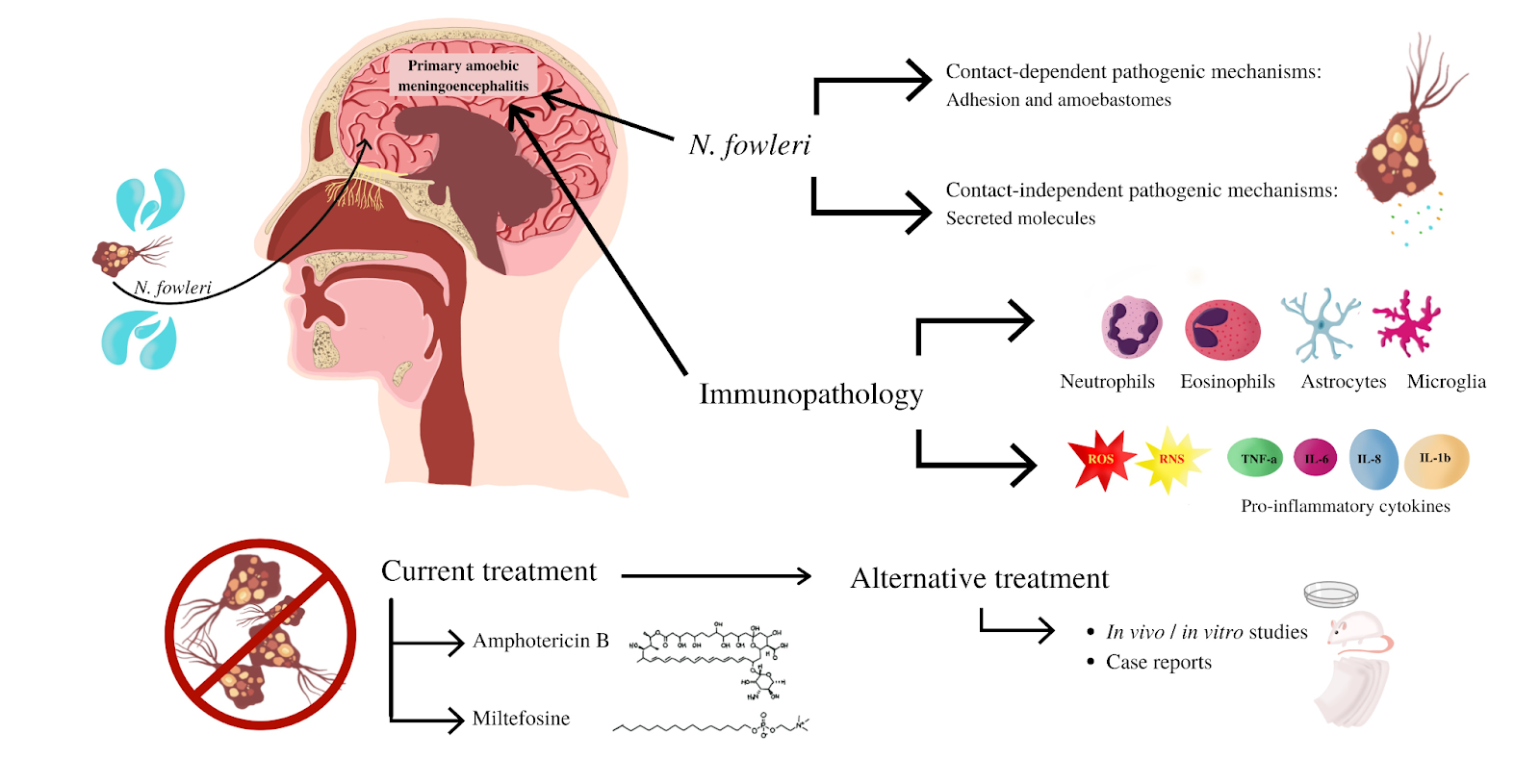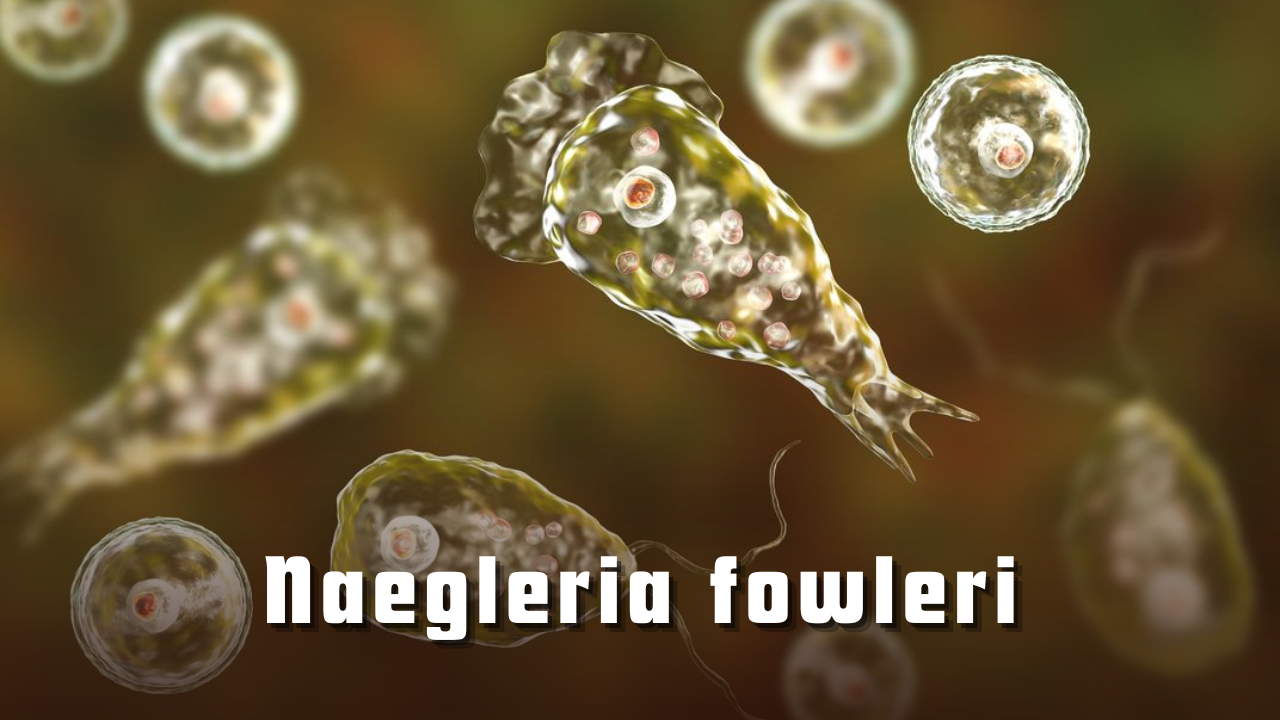Naegleria fowleri
Brain-eating amoeba is Kerala’s new health emergency
Naegleria fowleri: Kerala is currently grappling with a surge in cases of Primary Amoebic Meningoencephalitis (PAM), a rare but deadly brain infection caused by Naegleria fowleri.

What is Naegleria fowleri?
Naegleria fowleri is a free-living amoeba commonly referred to as the “brain-eating amoeba.” It thrives in warm freshwater environments such as ponds, wells, lakes, and rivers. Causes two forms of infection:
- Primary Amoebic Meningoencephalitis (PAM): acute, usually fatal brain infection.
- Granulomatous Amoebic Encephalitis (GAE): slower progression, seen in immunocompromised patients.
How does it transmit?
The amoeba enters the human body through the nose, typically when a person is swimming, bathing, or using contaminated water for ritual or cleaning practices. Once inside the nasal cavity, it travels along the olfactory nerve to the brain, where it begins destroying brain tissue rapidly. Importantly:
- It is not spread by drinking contaminated water.
- Transmission occurs only when water containing the amoeba enters the nose.
Why is the disease concerning?
- High Fatality Rate: PAM has a global fatality rate of over 97%. Most infections result in death within a few days of symptom onset.
- Sudden Onset & Rapid Progression: Symptoms like fever, vomiting, headache, and seizures appear quickly and worsen fast.
- Hard to Diagnose: Initial symptoms mimic common illnesses; diagnosis often comes too late.
- Climate-Linked Spread: Rising temperatures are expanding the amoeba’s habitat, increasing the risk.
- Emerging Risk in India: Previously rare in India, recent clusters of cases in Kerala have reported 41 cases in 2025, with 18 active cases and multiple deaths, including children.
What measures have been taken to curb it?
- Public Health Campaigns: Kerala’s Health Minister launched awareness drives urging people to keep water sources clean and avoid nasal exposure to untreated water.
- Medical Protocols: Kerala became the first Indian state to issue a dedicated treatment protocol for PAM, including aggressive use of antifungal drugs like Miltefosine.
- Preventive Guidelines:
- Avoid swimming in warm, stagnant freshwater.
- Use nose plugs if entering such water.
- Never use untreated tap water for nasal rinsing (e.g., neti pots); use boiled or distilled water instead.
- Surveillance & Testing: Increased testing under Acute Encephalitis Syndrome (AES) protocols has helped identify cases earlier.
Subscribe to our Youtube Channel for more Valuable Content – TheStudyias
Download the App to Subscribe to our Courses – Thestudyias
The Source’s Authority and Ownership of the Article is Claimed By THE STUDY IAS BY MANIKANT SINGH




